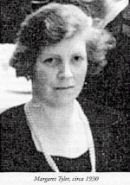Nux mosch. is “sleepy and COLD” -DROWSY, CRY, but with NO THIRST.
GUERNSEY’S summary of Nux mosch.: Drowsiness; very sleepy; stupor-like sleep. Complaints causing sleepiness.
Chilliness without thirst: heat without thirst: want of perspiration: no thirst.
Very dry mouth, so dry that tongue may adhere to roof of mouth, but no desire for water, rather an aversion to it. (Mercurius on the contrary, has tongue very moist, perhaps dripping with saliva, and there is great thirst.) Headaches with very dry mouth and no desire for water.
Worse cold, wet weather; in open air; in cold air. When weather changes (dry to wet, or vice versa, until it becomes settled). Worse wet weather: windy weather.
FARRINGTON says: Nux moschata exerts a very novel influence upon the mind. The state varies form a bewilderment, in which the surroundings are strange, dreamy, or fanciful, to a condition of absent-mindedness, sleepiness, and finally deep stupor, with loss of motion and sensation. Mental states may alternate. At one time she laughs, as if everything partook of the ludicrous. She jests even about serious subjects. Suddenly her mood changes to sadness, with weeping and loud crying; or her expression grows stupid, all ideas vanish, and she appears as if overwhelmed with sleep.
There are, likewise, errors of perception; a momentary unconsciousness she regards as having been of long duration. Her hands look too large. Objects gradually diminish in size as she looks at them steadily.
The bodily functions come under the same influence; great weakness and bruised feeling in small of back and legs; knees feel as after a long journey; prostration; tendency to faint; oppressed breathing, rush of blood to the heart, skin cold and dry. So relaxed that pulse and breath are scarcely discernible. Head drops forward, the chin resting on the breast. Head rolls about as if bulky. Bowels enormously distended with wind, as from weak digestion. Even soft stools are evacuated with difficulty.
It is this mental and bodily atony which has led to the excellent cures made with Nux moschata, not only in hysterical weakness, but in typhoid and cholera infantum. The hystero- spasmodic symptoms of the drug are intimately co-mingled with the above symptoms; head jerked forward; jaws clenched; heart as if grasped; sudden oppression of the heart, with choking sensation; tonic, followed by clonic spasm; unconsciousness or fainting.
Accompaniments are: Great dryness of mouth and throat, which, with her tendency to magnify, she complains of extremely. The least emotional excitement renews the symptoms, increases the distension of the abdomen, etc. Skin cool and dry, no disposition to sweat.
KENT has a small article on Nux mosch. He says it is not a very great remedy, but is often overlooked when needed. We get into the habit of relying entirely on the polychrests.
The root is much stronger than the nut in the same proportions, and contains the real medicinal qualities.
Dazed: automatic a wonderful state of mind. Goes about performing her duties, but if interrupted forgets what she has done, forgets that she was in conversation with her son. Has no recollection of past events.
Lies with eyes closed: knows what is going on, but remembers nothing. Seems in a dream. Seems not to know her friends.
She is always ready to go to sleep in season and out of season.
Useful, he says, in the coma of typhoid and intermittent fever. Answers slowly after a long interval, then looks confused again. The answer may have no relation to the question asked.
The sleepiness and the dazed state combined are difficult to cover with a medicine: this state is somewhat like Opium.
Faintness on long standing, as having a dress fitted.
Dry mouth: sleepiness and automatic conduct: has cured petit mal.
Especially suitable for lean women, who have lost flesh; the breasts are flat. I remember a woman of thirty-five whose breasts once well-rounded, became perfectly flat. Nux mosch. restored the breasts.
A little remedy, but when wanted, nothing will take its place.
We will end with a quotation from Neatby and Stonham’s Manual:
“As with all other medicines, when given according to the law of similars, Nux mosch. will give relief and effect cures in diseases, no matter how named and classified, if the correspondence between drug and disease is sufficiently close.”.

